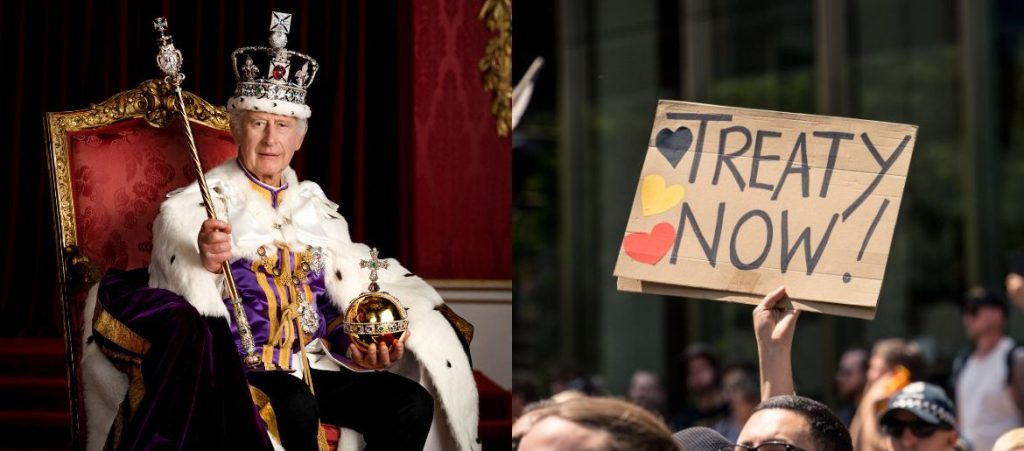
“Australia is the only country in the world that celebrates its national day on the day it was colonised.” At best, this is pathetic; at worst, it’s a disgustingly cruel and deliberate decision to party on a Day of Mourning for First Nations people. Does having a ‘national day’ matter, and if so, when is a better option? A few years ago it was popular to suggest alternative days (remember when May 8 was considered a genuinely funny meme?) knowing full well that these would not be taken seriously. But lately, discussions about Australia becoming a republic have become more earnestly intertwined with the questions of if, when, how and why to celebrate national identity.
The idea that an independent Australia is one we can truly celebrate seems palatable enough for open-minded members of older generations, and aspirational enough for young people – who are the demographic most keen to cut off the British Monarchy. Content creator Jack Toohey points out days other countries choose to celebrate: France’s Bastille Day famously marks the people’s violent coup against the monarchy; for New Zealand it’s the signing of the Treaty of Waitangi, an agreement between Māori chiefs and the British monarchy. These are the decisive, unifying foundations of a nation worth celebrating – not Day 1 of an invasion.
But if non-Indigenous progressives learnt anything from 2023 (and we should have), we should know that becoming a republic will not solve the ‘Australia Day’ problem. It’s not just the date that’s rotten, but the very foundation our national identity is built on.
Aboriginal and Torres Strait Island people have told us exactly what is needed to heal what Wiradjuri man Stan Grant once called “the deep wound at the heart of Indigenous Australia”. Time and time again, we refuse to listen.
The call for a treaty has been a consistent demand for decades and we’re the only British colony not to have one. Instead, the federal government opted to pursue a Voice to Parliament last year – an idea that was created in partnership with Indigenous representatives, but is still not a treaty. Much of the Sovereign ‘No’ campaign against the Voice to Parliament was driven by fears that the federal government would use it as an excuse to say a treaty is not required. Those fears are being validated by the Queensland and Victorian Coalition parties now opposing the state treaty processes they previously supported. Win or lose, the Voice is indeed being used as an excuse to undermine the very straightforward request.
Australia has not proven itself to be a trustworthy negotiator.
The concerns apply to the republic movement too. There is no guarantee a new constitution would formally recognise Indigenous sovereignty like a treaty would. In fact, it could be used to distance ourselves from our colonial past instead of confronting those horrors and admitting to the illegitimacy of the nation’s founding. Right now some people will still insist that actions of colonisers in 1788 have no impact on Australia today, even while we are still directly and legally tied to the perpetrators. Once those formal ties are gone, it will be even easier to say “We are not them any more” without having really earned the right.
In his speech at the 2002 National Treaty Conference, the late Dr William Jonas (Worimi man) explained how moving forward with major legal or constitutional changes without first accepting Indigenous sovereignty can cause problems. “In rejecting terra nullius [the Mabo decision] recognised the illegitimacy of the assertion of sovereignty by the British Crown in 1788. However, by also treating this as non-justiciable, it left a gap and an uncertainty at the core of our society.” The decision resulted in the Native Title Act (1993), which is used to restrict land claims by Traditional Owners rather than facilitate them.
Papering over the cracks didn’t work, and neither will trying to outrun our own past.
That’s not to say the idea of an Australian Republic is worthless. It’s still a glimmer of hope that our national identity can heal and evolve… so long as the healing comes firmly first. At the time of Queen Elizabeth II’s death, Gunnai, Gunditjmara and Djab Wurrung Senator Lidia Thorpe said the process of treaty-then-republic “would bring us all together – it would force us to tell the truth about our history and move us towards real action to right the wrongs that started with colonisation.”
The good news is that the moment for an Australian republic has not yet arrived. To be honest, I don’t think we’ll be there for another decade at least. Which means we still have time to do it right, to refocus on the Treaty movement after the distraction of the past two years. Get behind the incredible First Nations leaders who have been relentlessly pushing for this essential change that will give us something worth honouring.

Comments are closed.